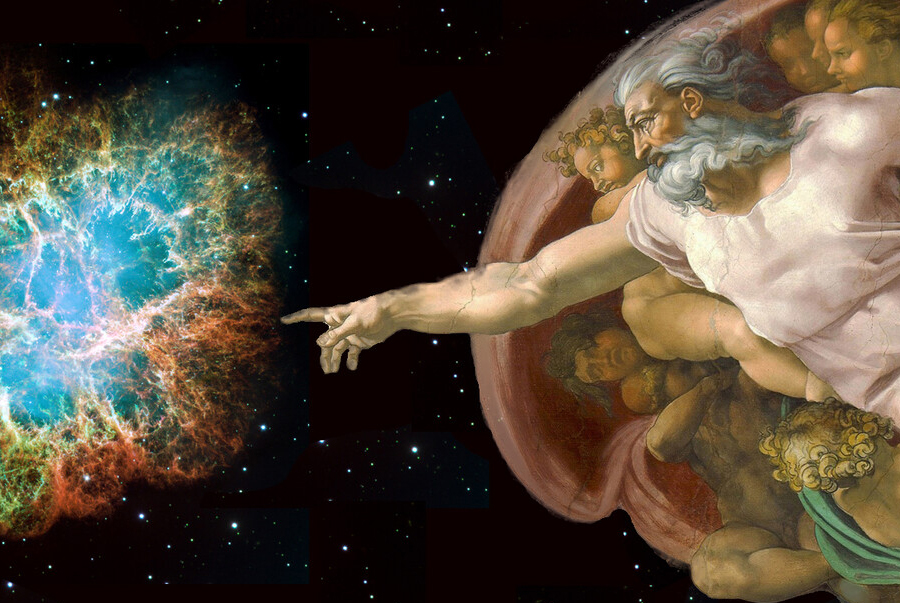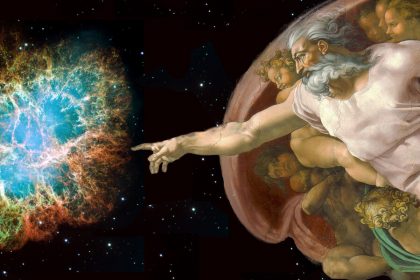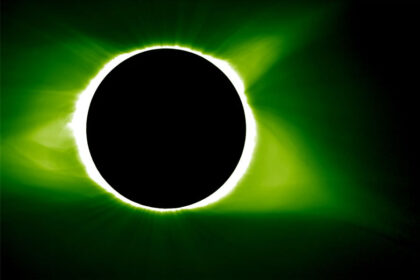Hi readers! Let’s look at a new dimension of science and religion and this time it is about how Judaism viewed and developed science.
Judaism is one of the three major Abrahamic monotheistic religion involving range of beliefs and practices that express an agreement between God and the people of Israel.
The central dogma of Jewish practices and beliefs is the study of written Torah called “Hebrew Bible”, and the “Oral Law” of Rabbinic Judaism compiled as Talmud which is a record of Rabbinic debates on the teachings of the Torah. In both Torah and Talmud, efforts were made to understand how the knowledge should be applied in seeking answers for the situations they themselves were encountering.
Talmud in its present form is written to two Babylonian (Babylon: one of the most famous cities of the ancient civilization and was the capital of Babylonia in southern Mesopotamia. Today, it is about 60 miles south of Baghdad, Iraq) thinkers, RavAshi and Ravina II.
RavAshi was president of the Sura Academy: a Jewish yeshiva located in Sura, Babylonia and was one of the two major Jewish academies established in the year 225 CE at the beginning of the era of the Amora sages or the Jewish scholars of the period between 200 to 500 CE, who “said” and “told” teachings of the Oral Torah until 1033 CE at the end of the era of the Gaonim.
Gaonim was the presidents of the two great Babylonian Talmudic Academies of Sura and Pumbedita in the Abbasid Caliphate and were generally accepted as spiritual leader of the Jewish community from 375 to 427. RavAshi started the work that was completed by Ravina who “described” the teachings of the Oral Torah and was traditionally regarded as the final Amoraic explainer.
Biblical texts and the collection of sacred religious scriptures contain some esoteric and mystical interpretations such as Kabbalah: an esoteric philosophy maintaining that a “knowledge of God may be achieved through spiritual pleasure, direct intuition, or special individual relations”.It is his philosophy that has influenced Jewish work on the relationship between science and religion.
The Kabbalah influenced the resurgence of della Mirandola Pico: Italian philosopher famous for defending 900 theses on religion in 1486 at the age of 23 whose work helped shaping the scientific revolution.
The theologian Maimonides: one of the most prolific and influential Torah scholars of the middle ages also had an enduring influence on Jewish thought in scientific and religious literature.
The modern efforts of Judaism are Rabbinic, and not biblical and this has deep implications for the relationship between religion and science because both Jews and Evangelical Christians emphasize that reading and interpreting of the sacred texts (Rabbinic interpretation of Oral Torah that was originally an unwritten tradition based upon the law given to Moses on Mount Sinai) is honest and sincere and that the scripture should not be read in a simple literal fashion. This opens up more space for accepting scientific theories such as Big Bang cosmology which appeared difficult with a simple literal reading of Torah like the six-day creation in Genesis. Also, openness of modern Jews in the US to identify themselves as politically liberal helped them because such people in the US have positive attitudes toward science.
Jewish thinkers have made substantive theoretical contributions to the relationship between science and religion that is enormously different from those seen in the literature written by Christian authors. For example, Hermann Cohen: a German Jewish philosopher assumed the relationship between Judaism and science in the light of advances in scientific disciplines and increased participation of Jewish scholars in science. He argued that science, ethics, and Judaism should all be conceived as distinct but complementary sciences.
Cohen believed that his Jewish religious community was facing a philosophical crisis. All references to God had become suspicious due to adherence to philosophical belief that everything arises from natural properties, causes, and
supernaturalism (theological belief that a force or power other than man or nature is ultimate. This supernatural force: the God regulates both man and nature, making both of them subordinate to it)
for which there was no explanations. Soon he started feeling that Jews also lacked philosophy which can address the question of how entities exist on the most fundamental level.
Cohen saw the concept of unequalled God (blessed and the only Sovereign, the King of kings and the Lord of lords, who alone has immortality, who reside in unapproachable light) as the foundation of both Jewish practices and believes, hence adherence to naturalism will threaten both correct belief and correct conduct of Jewism. He also anticipated that
Since Jewish scientists wanted to retain credibility in the Christian dominated culture hence, they under-emphasized and neglected the rich Jewish intellectual legacy in their practice.
In response to this intellectual crisis, Cohen proposed to reframe Jewish thoughts and philosophy so that it would not only be aligned with traditions but also contribute to ethical and scientific advances. He reframed the Jewish thoughts articulating the philosophy of science that can combat a perceived conflict between Judaism and science.
Jewish religious scholars have examined how science might influence religious beliefs and vice versa. Jewish scholars in the early twentieth century accepted biological evolution but were hesitant about Darwinian natural selection as the mechanism. The Latvian-born Israeli Rabbi Abraham Isaac Kook thought that religion and science are largely separate domains though he believed that there was a possible flow from religion to science. For example, he challenged the lack of directionality in Darwinian evolutionary theory. Using readings of the Kabbalah and Halakha (the totality of laws and ordinances that have evolved since biblical times to regulate religious observances, daily life and conduct of the Jewish people), he proposed that biological evolution fits in a larger picture of cosmic evolution towards perfection.
Contrary to this, American Rabbi Morcedai Kaplan thought that flow of information between science and religion could go in both directions. He repeatedly argued against scientism or the encroachment of science on too many aspects of human life including ethics and religion, but he also believed that we must apply scientific methods to the religion (food for taught). He saw reality as an unfolding process without pre-decided or pre-determined goal. He was a progressive who believe in explanation of phenomena in terms of the purpose they serve rather than of the cause by which they arise.
Kaplan emphasized the importance of morality and identified God as the source of this process. He conceptualized humanity as not merely a passive but an active participant and recipient of evolutionary changes. Thus, Kaplan’s reception of scientific theories especially the evolution, led him to formulate an early Jewish school of thought influenced by the metaphysical processes.
Reform Judaism was initiated in Germany by the philosopher Moses Mendelssohn who abandoned aspects of orthodox Jewish worship and rituals in an attempt to adapt to modern changes in social, political, and cultural life.
Reformed Judaism is also known as liberal or progressive Judaism and is a major Jewish denomination that emphasizes the evolving nature of Judaism, the superiority of her ethical aspects to its ceremonial ones, and belief in a continuous search for truth and knowledge which is closely intertwined with human reason and not limited to theophany at Mount Sinai (the personal encounter with a deity: an event where the Abrahamic God reveals his presence to Moses). Specifically, it refers to the temporal and spatial manifestation of God in some tangible form.
Mendelssohn endorsed an explicit anti-conflict view on the relationship between science and religion. For example, the first document of the Reform Rabbinate (Pittsburgh Platform of 1885) has a statement which explicitly says that science and Judaism are not in conflict. We hold that the modern discoveries of scientific research in the domain of nature and history are not antagonistic to the doctrines of Judaism. This was the beginning of the rise of scientific achievement that not only Israel but the entire world is currently enjoying and probably will do so for longer time till a competitor comes in forefront. Pittsburgh Platform had a permanent influence on Reform Judaism over the next decades
Secular Jewish scientists such as Albert Einstein, Richard Feynman, Douglas Daniel Kahneman, and Stephen J. Gould have also reflected on the relationship between science and broader issues of existential significance and have exerted considerable influence on the science and religion debate.
So dear readers, that is how Science originated in Jewism.
Hope you will like the blog.
See you next week, till then
Take care, Bye.





